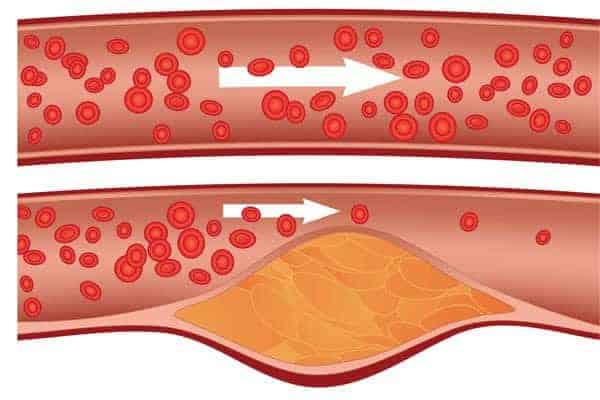15 Common Cravings That Could Signal Nutrient Deficiencies
Food cravings are often dismissed as simple desires, but sometimes they can reveal underlying nutrient deficiencies. Recognizing specific cravings may help you address gaps in your diet and improve your overall health. Being aware of these signs can guide healthier food choices and prompt timely interventions.
1. Chocolate Cravings

An intense urge for chocolate could be a sign of magnesium deficiency, a mineral essential for muscle and nerve function. This craving is especially common among women before menstruation, likely due to hormonal shifts and changing mineral needs. Incorporating magnesium-rich foods such as nuts, seeds, and leafy greens may help reduce chocolate cravings.
2. Ice Cravings (Pagophagia)

Frequently craving or chewing ice, a condition known as pagophagia, is strongly linked to iron deficiency anemia. Although the specific reason for this connection remains unclear, studies consistently associate ice cravings with low iron levels. Addressing the deficiency through iron supplements or by consuming iron-rich foods can help alleviate this unusual craving.
3. Salt Cravings

Craving salty foods intensely can indicate underlying electrolyte imbalances, especially deficiencies in sodium or chloride, or could be related to adrenal gland issues. While the body requires some salt for vital functions, persistent or excessive salt cravings may warrant further medical evaluation. Monitoring your salt intake and seeking professional advice is important if cravings persist.
4. Red Meat Cravings

Strong and frequent cravings for red meat often signal a deficiency in iron, zinc, or vitamin B12—nutrients particularly rich in beef and lamb. Individuals with lower stores of these nutrients, such as women of childbearing age, are more likely to experience these cravings. Addressing such deficiencies with dietary changes or supplements may help reduce the urge.
5. Cheese Cravings

Craving cheese could be a sign of calcium or vitamin D deficiency, as both nutrients are abundant in dairy products. Cheese also contains tryptophan, an amino acid that supports mood regulation. People with limited dairy consumption, such as vegans, may be more susceptible to these cravings. Ensuring adequate intake of these nutrients through diet or supplements can help.
6. Sugar Cravings

Persistent cravings for sugary foods can indicate imbalances in blood sugar or deficiencies in nutrients such as chromium, magnesium, or tryptophan. These nutrients play crucial roles in glucose regulation and mood stabilization. When sugar cravings are frequent and intense, it may also be a sign of insulin resistance or underlying nutritional gaps. Addressing these deficiencies can help manage cravings.
7. Bread or Pasta Cravings

An intense desire for starchy carbohydrates like bread or pasta may indicate low serotonin levels or insufficient intake of B vitamins, specifically thiamine or folate. These nutrients are vital for mood regulation and energy production. Addressing such deficiencies through a balanced diet can help stabilize cravings and improve well-being.
8. Soda or Fizzy Drink Cravings

Craving soda or fizzy drinks might be a sign of calcium deficiency or a need for phosphorous, since certain sodas contain phosphoric acid. Ironically, frequent consumption of these beverages can further deplete calcium levels in the body, potentially leading to greater deficiency. Monitoring your intake and choosing healthier alternatives can support better mineral balance.
9. Peanut Butter Cravings

An intense craving for peanut butter can be an indicator that your body needs more healthy fats, protein, or vitamin E. This is especially common among active individuals or those with higher energy requirements. Peanut butter is also a good source of niacin, a B vitamin essential for converting food into usable energy. Satisfying this craving with natural nut butters can support nutrient intake.
10. Pickle Cravings

Craving pickles is often linked to a sodium deficiency, as pickles are high in salt. This craving can also be common during pregnancy due to hormonal fluctuations. In addition to satisfying salt needs, pickles offer probiotics that can benefit gut health. If you regularly crave pickles, consider evaluating your sodium intake and overall diet.
11. Dairy Cravings (Milk, Yogurt)

Intense cravings for dairy products like milk or yogurt often signal a need for calcium, vitamin D, or beneficial probiotics that support gut health. Yogurt is also rich in protein, which helps with muscle repair and digestion. Meeting these nutritional needs is especially important for bone health and overall well-being.
12. Coffee Cravings

Consistently craving coffee may reflect a need for more energy, possibly due to deficiencies in iron or magnesium, or it could indicate caffeine dependence. While coffee does provide antioxidants and a temporary energy boost, relying on it excessively might mask underlying nutritional issues that need attention. Identifying and addressing these deficiencies can help manage coffee cravings more effectively.
13. Spicy Food Cravings

Craving spicy foods can sometimes point to low zinc levels, as zinc is essential for taste and immune function. Additionally, spicy foods trigger the release of endorphins, which can enhance mood and provide a sense of well-being. In hot climates, people may also crave spice because it promotes sweating, which helps cool the body.
14. Citrus or Sour Food Cravings

Yearning for citrus or sour foods, such as lemons or oranges, can indicate a vitamin C deficiency. Vitamin C is crucial for immune function, skin health, and wound healing. This craving is particularly common among pregnant women and individuals with low fruit consumption. Ensuring a diet rich in fresh fruits can help address this need.
15. Potato Chip Cravings

Craving potato chips often points to a need for sodium, potassium, or healthy fats. While chips quickly satisfy salt and fat cravings, they are not the healthiest option due to added oils and preservatives. Opting for more nutritious alternatives like baked vegetable chips or nuts can help meet these nutrient needs.
Conclusion

Paying attention to recurring food cravings can offer valuable clues about potential nutrient deficiencies and overall health. While cravings are common, persistent or intense urges may signal the need for a dietary adjustment or further investigation. It’s crucial to consult a healthcare professional before making significant changes to your diet or taking supplements, ensuring your choices are safe and effective.
Disclaimer

This article is for informational purposes only and is not intended as a substitute for professional medical advice, diagnosis, or treatment. Always consult a qualified healthcare provider with any questions regarding a medical condition.
.article-content-img img { width: 100% }




